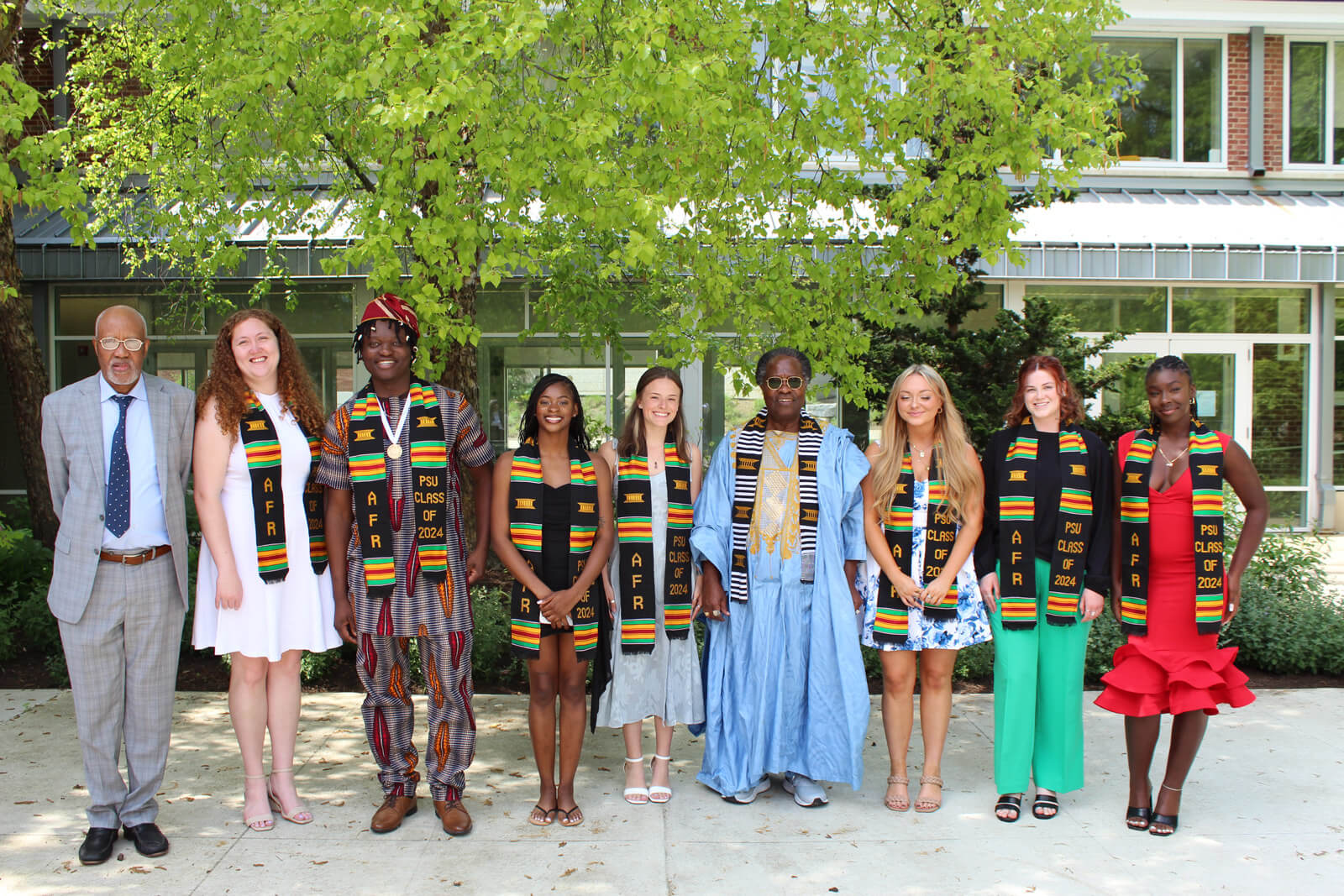*PENDING APPROVAL
What roles have Africa and Africans played in the past and contemporary world? How can such history be used to challenge traditional assumptions of African primitivity and irrelevance? This 12-credit Certificate will provide students with an opportunity to engage these historical and contemporary questions through a variety of disciplinary methods. Through courses that introduce them to an expansive array of historical narratives and information, students will explore the ways that Africa has played a formative role in global developments and intercultural interactions, ranging from its centrality in the Abrahamic faiths to the Atlantic and Arab slave trades to European colonialism and beyond. Students will learn about complex sites of interaction (including the Mediterranean Sea, Atlantic and Indian Ocean worlds) and be trained in analytical thinking and writing skills that will prepare them for a diversity of careers. Students may choose to focus on a particular area of study (i.e. take primarily History courses) or take an interdisciplinary blend of courses.
Graduates who earn this certificate will analyze African history, complete analytical writing projects that require secondary and primary research, and gain proficiency in critical thinking. Having developed such skills, they will be prepared for upper-level courses that are writing-intensive (like an Honors Thesis), pursue graduate work in fields that include History, Political Science, and International Relations, and/or prepare students for practice in careers that require intensive research and writing.
Program Learning Objectives
- Identify, describe, and analyze important developments in African history and the broader issues that they address
- Understand the ways that African peoples have participated in historical and contemporary world politics, economies, religions, and cultures
- Think critically and discuss the mutual interactions and exchanges that African and non-African societies have with one another
You Might Like This Program If…
- You want to gain a general understanding of Africa’s past and present role in the world
- You’re interested in pursuing a graduate degree in History, Political Science, African-American Studies, Economics, French & Francophone Studies, Religious Studies, International Relations, or other fields where a general understanding of African history will be important
- You’re interested in a career in international relations, non-governmental organizations, or non-profits that support, research, or operate in Africa
- You want to develop critical thinking skills for analyzing and interpreting historical data concerning Africa
- You’re interested in the complex interactions that Africans have had with non-Africans, as well as the formative influences that Africans and non-Africans have had on each other across space and time
Program Requirements
To earn an undergraduate certificate in “Africa in World History,” a minimum of 12 credits of required.
Required Courses
6 credits from the following core course options:
- HIST/AFR 191: Early African History
- HIST/AFR 192: Modern African History
- HIST/AFR 479: History of Imperialism and Nationalism in Africa
6 credits from the following elective course options:
- AFR 110N: Introduction to Contemporary Africa
- SOC 209: Poverty in Africa
- AFAM 211: Slavery and Freedom in the Black Atlantic
- AFR 405: African Studies Methodologies
- HIST/AFAM 431: Black Liberation and American Foreign Policy
- PLSC 434: War and Development in Africa
- PLSC/IB/AFR 440: Globalization and Its Implications
- GEOG/AFR 444: African Resources and Development
- PLSC/AFR 454: Government and Politics of Africa
- PLSC/AFR 464: Extractive Industries in Africa
- AFR 497: African Crops that Changed the World
- ANTH 497: African Archeology
- Independent Studies or Special Topics course taught by AFR or other approved faculty
Non-Course Requirements
Per University policy, all credit courses for a certificate require a grade of ‘C’ or higher, and at least two-thirds (2/3) of the credits used to complete a certificate must be earned at Penn State. If student is completing multiple certificates in African Studies, no more than one (1) course may double-count for each.
